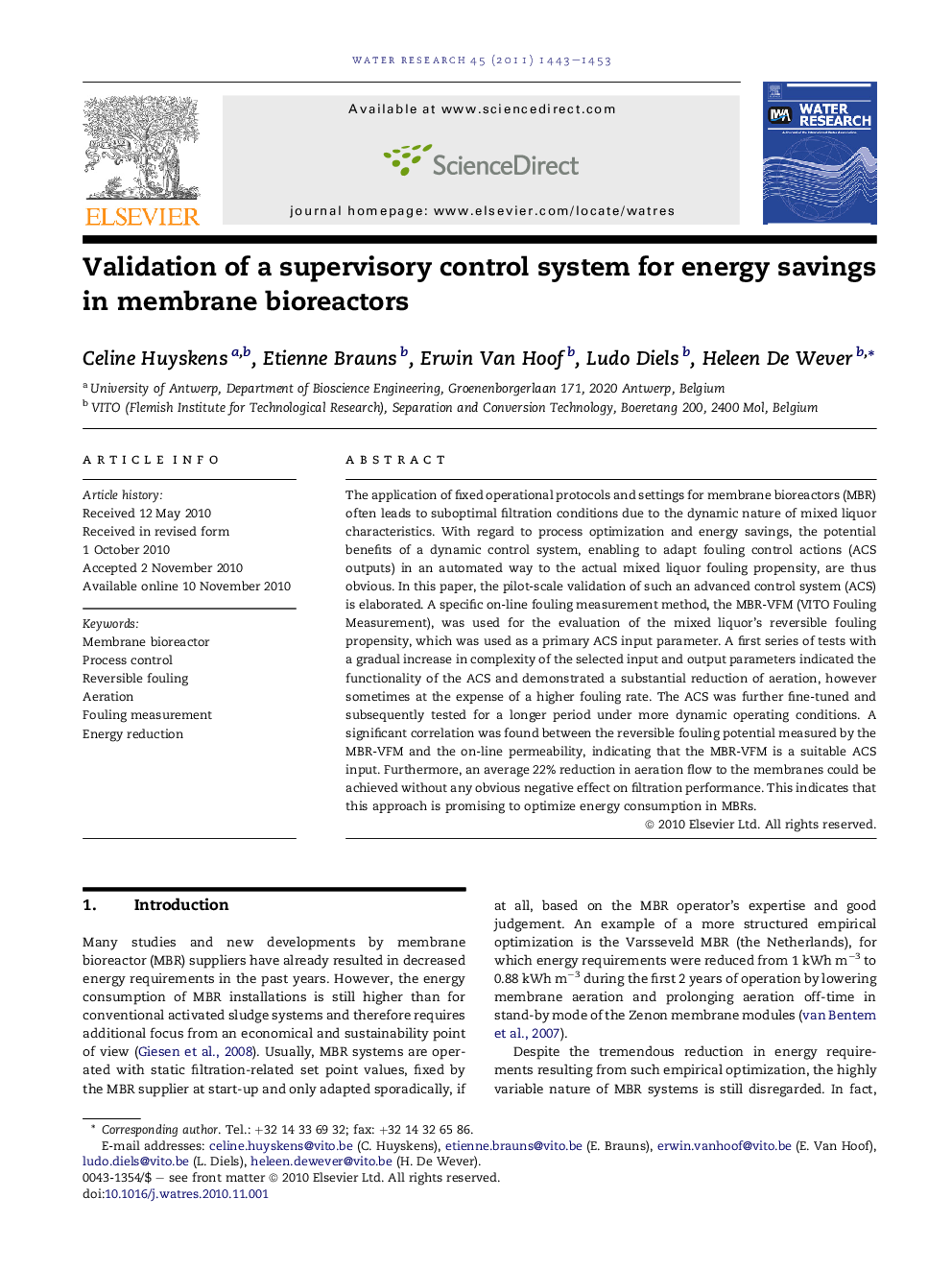| Article ID | Journal | Published Year | Pages | File Type |
|---|---|---|---|---|
| 6368146 | Water Research | 2011 | 11 Pages |
Abstract
The application of fixed operational protocols and settings for membrane bioreactors (MBR) often leads to suboptimal filtration conditions due to the dynamic nature of mixed liquor characteristics. With regard to process optimization and energy savings, the potential benefits of a dynamic control system, enabling to adapt fouling control actions (ACS outputs) in an automated way to the actual mixed liquor fouling propensity, are thus obvious. In this paper, the pilot-scale validation of such an advanced control system (ACS) is elaborated. AÂ specific on-line fouling measurement method, the MBR-VFM (VITO Fouling Measurement), was used for the evaluation of the mixed liquor's reversible fouling propensity, which was used as a primary ACS input parameter. A first series of tests with a gradual increase in complexity of the selected input and output parameters indicated the functionality of the ACS and demonstrated a substantial reduction of aeration, however sometimes at the expense of a higher fouling rate. The ACS was further fine-tuned and subsequently tested for a longer period under more dynamic operating conditions. A significant correlation was found between the reversible fouling potential measured by the MBR-VFM and the on-line permeability, indicating that the MBR-VFM is a suitable ACS input. Furthermore, an average 22% reduction in aeration flow to the membranes could be achieved without any obvious negative effect on filtration performance. This indicates that this approach is promising to optimize energy consumption in MBRs.
Related Topics
Physical Sciences and Engineering
Earth and Planetary Sciences
Earth-Surface Processes
Authors
Celine Huyskens, Etienne Brauns, Erwin Van Hoof, Ludo Diels, Heleen De Wever,
